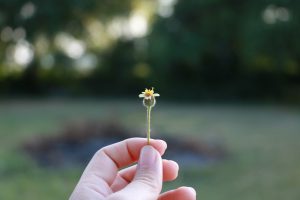A Posture of Sabbath
Chad+ Jarnagin
 There is an alarm sounding off these days, but many of us are ignoring it. I lament the fact that I allow myself to be extremely busy at times. With email, phone, texts and feeds dinging/ringing, the noise can drown out the “still small voice.” This isn’t something many of us have the ability to regulate. Life’s demands are relentless at times. We are in desperate need of stillness, of Sabbath.
There is an alarm sounding off these days, but many of us are ignoring it. I lament the fact that I allow myself to be extremely busy at times. With email, phone, texts and feeds dinging/ringing, the noise can drown out the “still small voice.” This isn’t something many of us have the ability to regulate. Life’s demands are relentless at times. We are in desperate need of stillness, of Sabbath.
In her book Wisdom Distilled from the Daily, Sister Joan Chittister says, “Leisure … is an essential part of Benedictine spirituality. It is not laziness and it is not selfishness. It has to do with the depths and breadth, length and quality of life. In an American culture, however, leisure may also be one of the most difficult spiritual elements to achieve. We are trained to be doers and makers, not dreamers and seers.”
Rest and sabbath in a culture of exhaustion may be the only antidote to our soul fatigue. Slowing down our pace of life is becoming more and more difficult. “Taking a deep breath” seems to be a meaningless saying with no frame of reference, though it is one of the first things a therapist or doctor would tell us to do in a stressful situation.
We are each wired with specific capacities, desires and tendencies. We are different, diverse and unique, which enables and constrains growth and the expansion of our minds. The pace at which we can learn to live over time will either hinder or facilitate growth and health. An important aspect to a healthy pace of life is our time of leisure, Sabbath. This can be spontaneous or intentional, and it is probably helpful when it is both. In regard to a spiritual way of living, we begin to recognize cultural tensions with our permission for leisure. More times than not, we will sense a twinge of guilt or shame when practicing leisure.
“If you keep the Sabbath, you start to see creation not as somewhere to get away from your ordinary life, but a place to frame an attentiveness to your life.” —Eugene H. Peterson
In The Shattered Lantern, Ronald Rolheiser suggests that, “The way back to a lively faith is not a question of finding the right answers but living in a certain way.” He proposes that the existence of God, like the air we breathe, need not be proven. Rather, is a matter of developing good lungs to meet it correctly. These are words igniting my spirit in ways I know has God smiling. If we take the time to read, listen and stop all the hustle and hurry, we will most certainly be surprised by what can occur in those moments, as well as how we can potentially be enabled to approach the remainder of the day. The art of listening moves us into a receptive mode of living. Being receptive requires a celebration and practice of Sabbath, where Sabbath can become a season/time of receptivity.
“The Sabbath is a reminder of the two worlds—this world and the world to come; it is an example of both worlds.” —Abraham Joshua Heschel
The benefits are more than helpful; they can be holy. In our modern observations, we have limited capacity for these ways of living; but that doesn’t diminish their importance. Living in rhythms of attention, communion, slowing our pace, peace and working for peace comes from a deep resting of Sabbath.

The Reverend Chad E. Jarnagin is the founding Rector of Luminous Parish in Franklin, Tennessee. He is an ordained Anglican priest with a passion to introduce, curate and develop catechesis, ancient spirituality and contemplation, respecting intentional pace for spiritual formation. He is also the author of "Learning to Be."
Category: Discipleship, Faith Formation, Spiritual Growth
Tags: Chad Jarnagin, rest, Sabbath, Text










